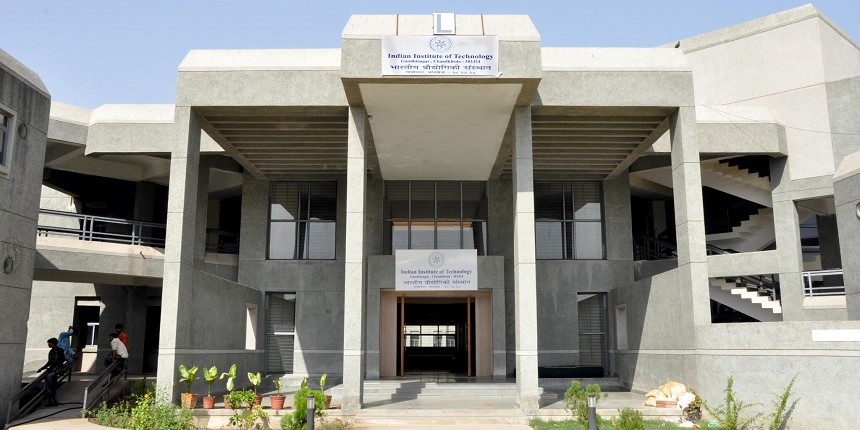IIT Gandhinagar develops cost effective, eco-friendly technique to make seawater potable
Press Trust of India | February 6, 2022 | 04:58 PM IST | 3 mins read
IIT Gandhinagar: The finding has been published in the international journal 'Nature Communications'.

NEW DELHI: Researchers at the Indian Institute of Technology, Gandhinagar, have developed a cost-effective and environment-friendly water desalination technique to make seawater potable by removing over 99 per cent of salt ions and other impurities with natural processing.
According to the team, this is the first such method that could controllably manipulate graphite, without damaging its structural integrity, inside aqueous solutions. The finding has been published in the international journal 'Nature Communications'. The research has been inspired by trees' natural intake of water using capillary effect, the team said, adding it can prove useful in designing filters for gas purification, proton exchange in a fuel cell, chemical separation, recovery of precious metal from waste among others. It can also be suitable for dehumidification applications as expanded graphite has high water evaporation rates, the team said.
Also read | Postpone NEET MDS 2022: Medical aspirants demand justice after NBE postponed NEET PG
"Continuous rise in population and enormous energy demands has put immense pressure on conventional clean water resources. "The widely used reverse osmosis technique for desalination is expensive, wastes more water, and is highly energy-intensive, which typically requires hydrostatic pressures of 60-80 bar," Gopinadhan Kalon, Assistant Professor, Physics and Materials Engineering, IITGN told PTI.
He said with the rising demand for potable water and continuously shrinking freshwater resources, more and more countries will have to turn to desalination of seawater to meet the needs. The team created controllable water transport channels in graphite crystal with the help of an electric field and potassium chloride ions, which allowed only freshwater to move through the crystal and blocked all salt ions. Kalon explained that selective transport of molecules and ions is commonly observed in biological systems and mimicking these biological channels could result in a highly efficient filtration system.
Also read | IIT Guwahati launches BTech in Energy Engineering; admission through JEE Advanced 2022
"The research team used capillary process which does not cost any energy, and in fact evaporation of water happened spontaneously without the need of any external pressure. "The evaporation rates provided a back-calculated pressure of 50-70 bar arising from the capillary and other forces that are present inside the nanoscale channels," he said.
The researchers found that this technique is self-sufficient and can successfully remove more than 99 pc of salt ions and other impurities from seawater, making it completely safe for drinking. Moreover, carbon materials like graphite are antimicrobial, reducing the number of filters required in the desalination process.
"Natural graphite is not absorptive to water or any ions, including protons. However, by its nature, the graphite crystal also does not allow any water molecules to pass through it because there is not enough space for the movement of these molecules," said Lalita Saini, a PhD scholar at IIT Gandhinagar. "This issue was solved by using an electric field and inserting potassium chloride ions in it, which create some space inside the graphite crystal and provide a stable structure for easy passage of water molecules, while hindering the movement of any salt ions, giving drinkable water," she added.
Also read | NITIE Mumbai to become IIM; ministry of education forms expert committee
Asked what makes the method cost-effective and environment-friendly, Saini explained that carbon is abundant in nature and India is the second-largest producer of graphite in the world. "The current experiment has utilised natural graphite. However, the team is also devising a method that does not require natural graphite. Instead, they can synthesise graphene from waste, plastics, wheat, sugar, chocolate and assemble it to make a graphite-like structure. "The water evaporation and water filtration processes used in this technique do not involve any electricity and therefore there is no gas emission, making it environment-friendly," she said.
The team is now working on developing a direct point-of-use water filter using this technique to make it accessible for the masses. "Our method is not only limited to graphite but also to a large number of layered materials like clay that could be explored for high-performance separation applications. With abundant seawater and appropriate plant design optimisation, our method holds a bright future in realising the dream of drinking water for everyone," Kalon said. Other members of the team include PhD scholars Aparna Rathi, Suvigya Kaushik, and a post-doctoral fellow Siva Sankar Nemala.
Follow us for the latest education news on colleges and universities, admission, courses, exams, research, education policies, study abroad and more..
To get in touch, write to us at news@careers360.com.